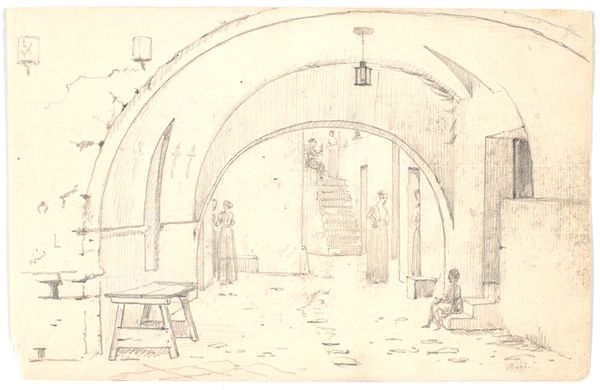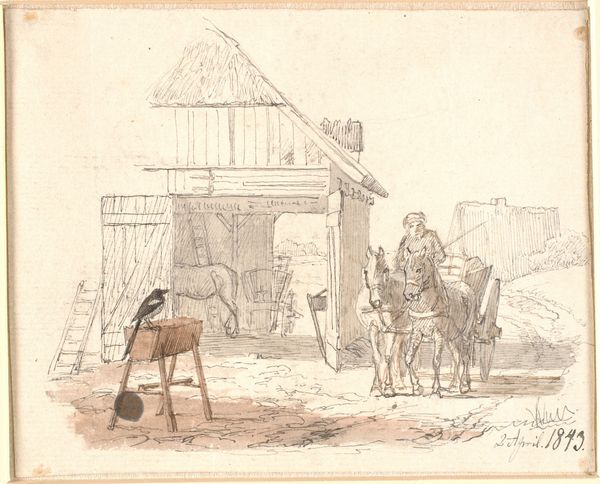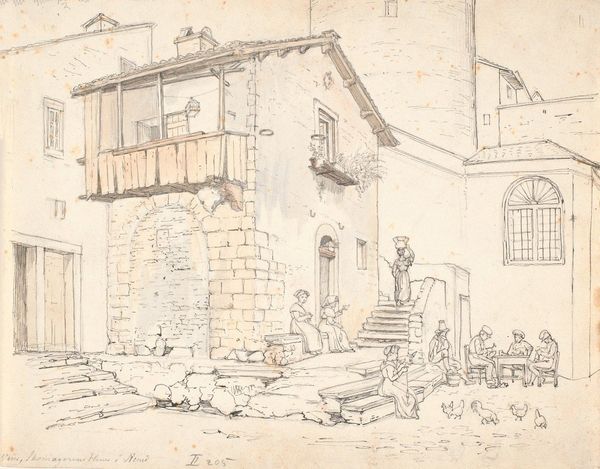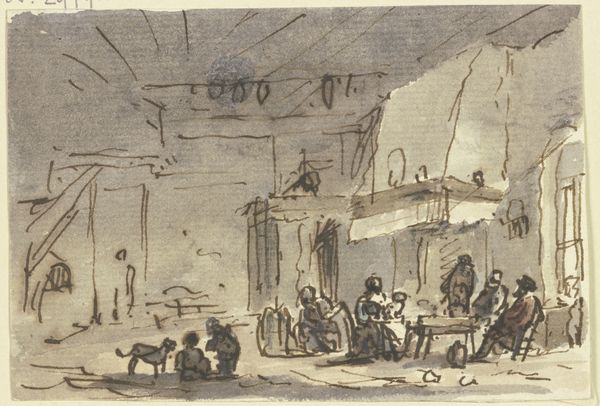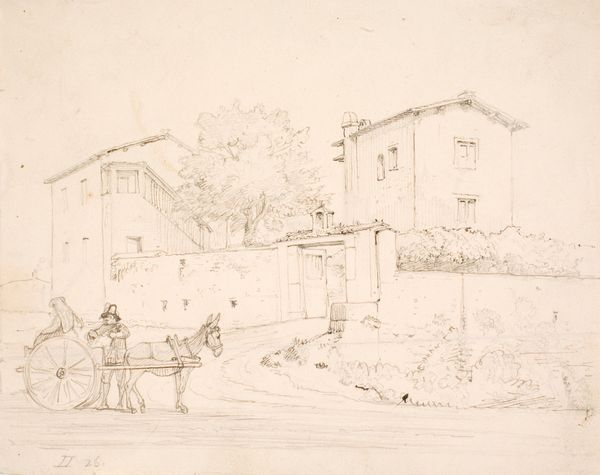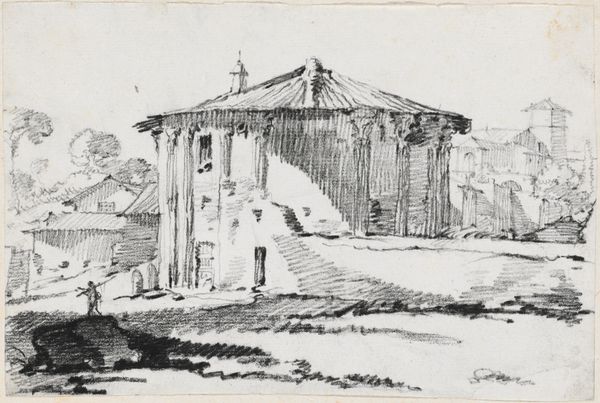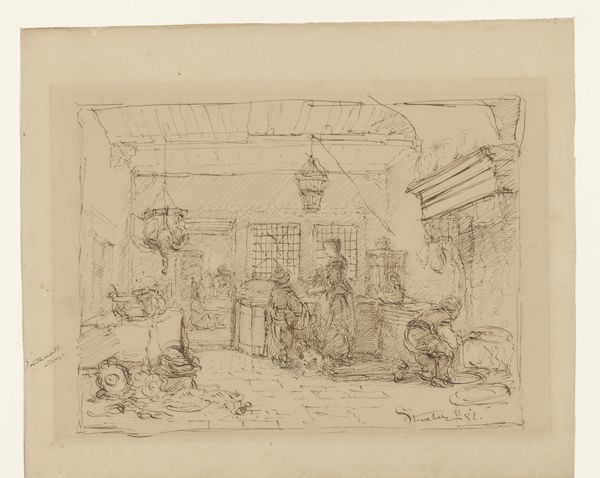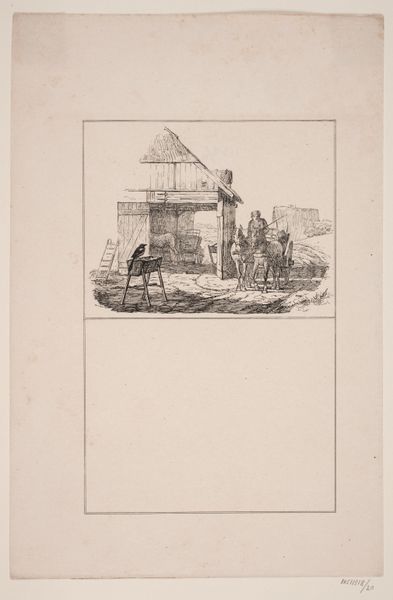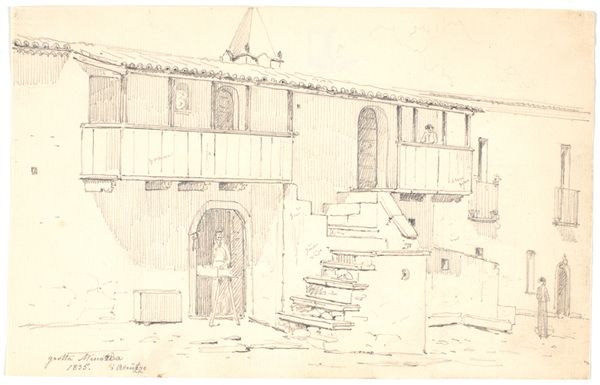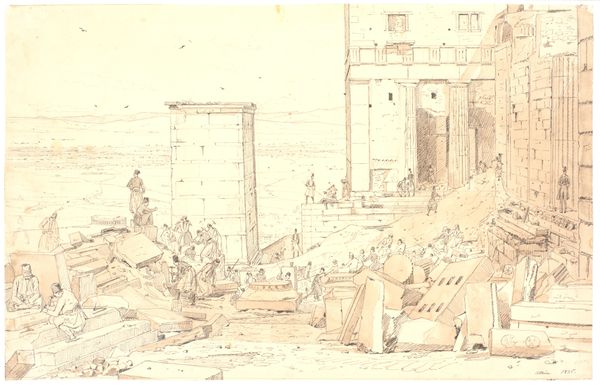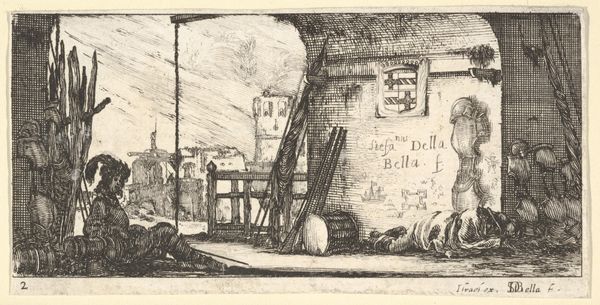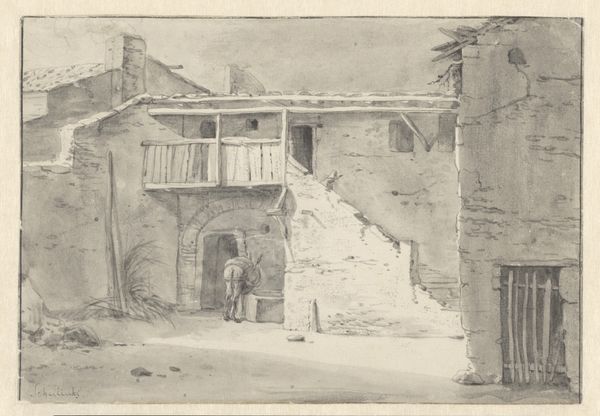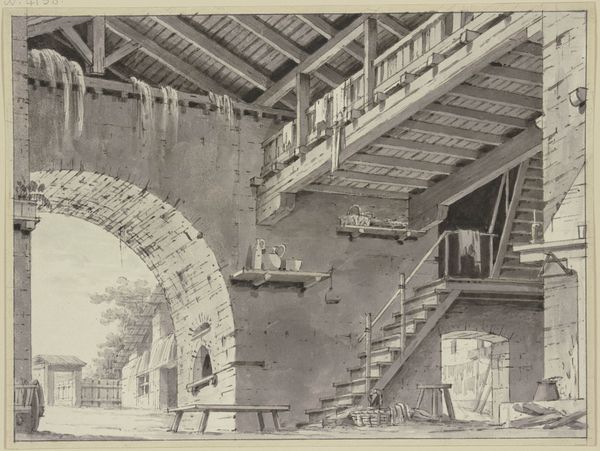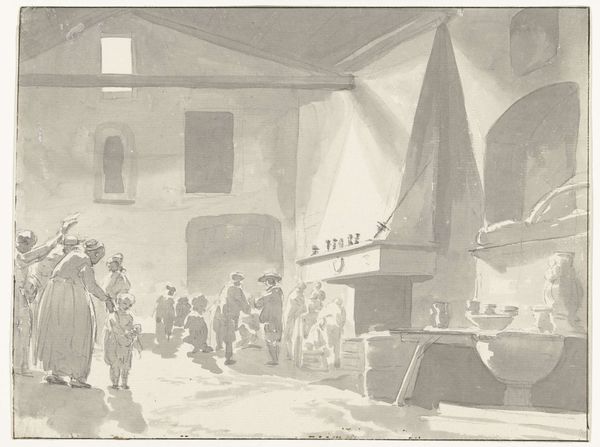
drawing, ink, pencil
#
drawing
#
landscape
#
ink
#
romanticism
#
pencil
#
genre-painting
Dimensions: 151 mm (height) x 210 mm (width) (bladmaal)
Martinus Rørbye made this delicate drawing of an Italian tavern in 1835, likely using graphite or a similar lead-based medium on paper. Notice how the artist’s hand is evident in the precision of the lines, bringing to life this everyday scene with what appears to be swiftness and accuracy. Consider the social context of this ostery, and how the artist carefully imbued its essence into the artwork. The details of the architecture – from the rough stonework to the faded inscription “osteria con cucina” – give a sense of place, while the figures add a human element. The tools, like the flute, and the table of wine, speak of the pleasures of daily life, while the donkey is perhaps used for labor. The very act of drawing, in this context, is a kind of labor, a means of capturing and preserving a fleeting moment in time. Rørbye's drawing invites us to consider the value of these transient moments, elevating the ordinary to something worthy of contemplation.
Comments
No comments
Be the first to comment and join the conversation on the ultimate creative platform.
